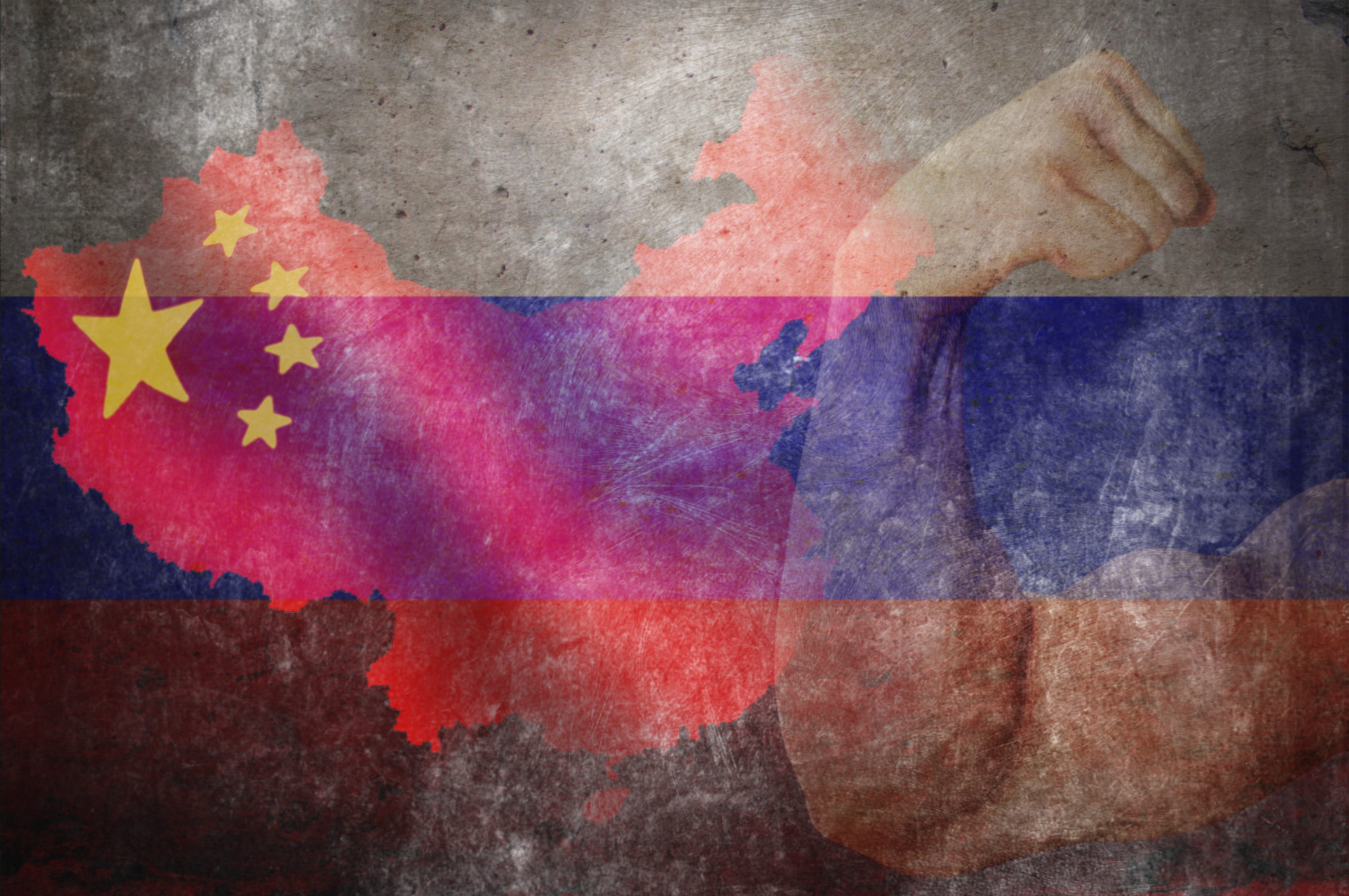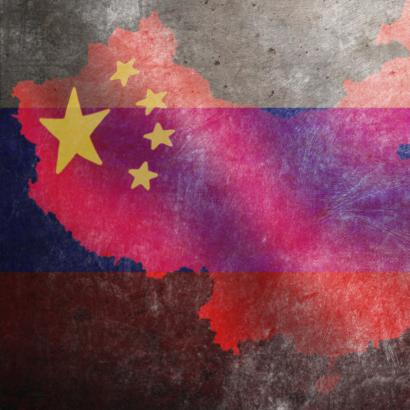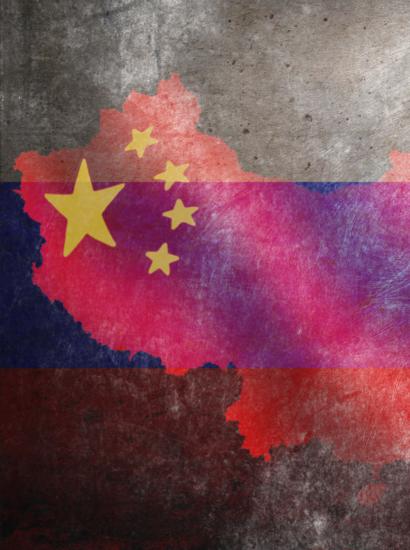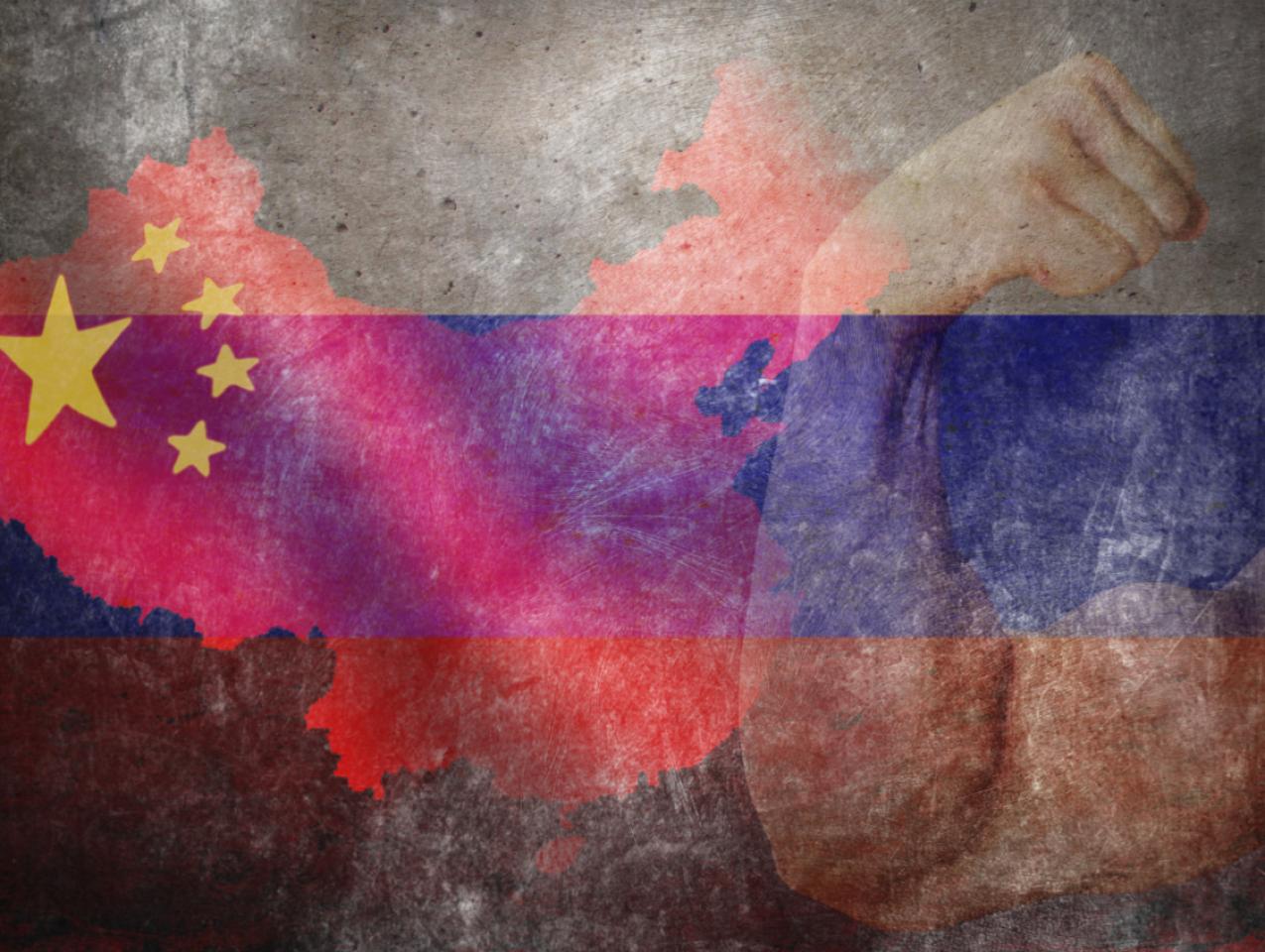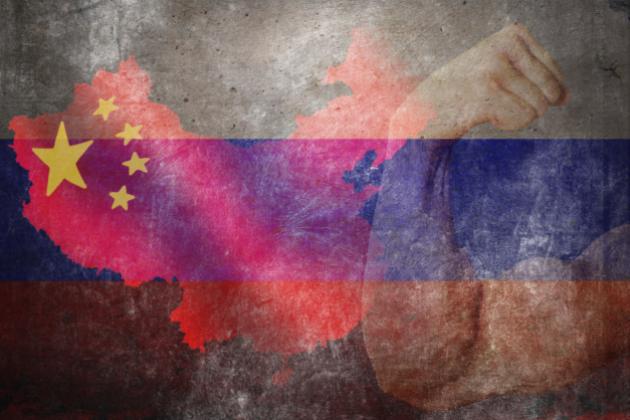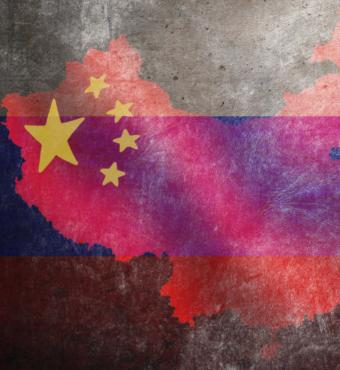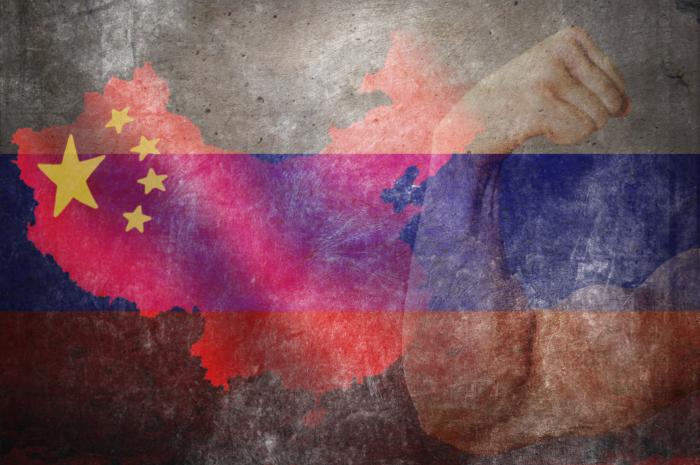During World War II, FDR wisely gave priority to defeating Nazi Germany despite the American people’s outrage over the Japanese attack on Pearl Harbor. Likewise, Putin’s dastardly invasion of Ukraine should not overshadow ominous ramifications of the recently consummated Sino-Russian condominium.
On February 4, Vladimir Putin and Xi Jinping declared that Russia and China had reached a detailed comprehensive accord committing each to support and facilitate the other’s revisionist agenda aiming to supplant the United States as the world’s preeminent power. The dynamics of Sino-Russian collaboration as war rages in Ukraine portend more to come—politically, militarily, and economically. China has defended the legitimacy of Russia’s hostility toward NATO and strives to blunt the effects of the sanctions the West has imposed on Russia. Russia has endorsed China’s implacable determination to subjugate Taiwan and Beijing’s antipathy to the AUKUS pact and the Quad.
This dangerous inflection point in the Sino-Russian partnership underscores the imperative of a muscular, integrated long-term American response that would entail President Biden ceasing to do much of what he has been doing so far. In the first place, the President got it backwards during the 2020 campaign when he designated Russia as a more dangerous “opponent” and China secondary “competitor.” The trajectory of an increasingly authoritarian, illiberal, revisionist, and less risk-averse China under Xi Jinping has no close peer as the paramount danger facing the United States and the free world. The United States must focus above all on maintaining its strategic primacy with respect to China, especially in the Indo-Pacific, the world’s most important power center for the 21st century.
In the second place, the new quasi-Alliance between Russia and China underscores the imperative of raising substantially President Biden’s parsimonious defense budget, including for accelerated development of threshold technologies, especially in space. Walter Russell Mead prudently calls for the Biden administration to raise defense spending from 2.98 % to 4% percent of GDP—well within our means and substantial enough for the United States in concert with like-minded allies—credibly to deter and, if necessary, defeat Chinese and Russian military power.1 Decades of Western Europe’s neglect of its defenses have significantly inhibited the timeliness and effectiveness of NATO’s belated military assistance to an embattled Ukraine. Words will not substitute for a long overdue military buildup to ensure that NATO does not find itself in the position of lacking the capabilities to match its aspirations.
In the third place, the Sino-Russian pact underscores the imperative of repudiating the Biden administration’s penchant for making alliance consensus as an end in itself. Witness, emblematically, the Biden administration’s perverse decision in the name of alliance solidarity to abandon President Trump’s stout opposition to the Nord Stream 2 pipeline—thereby ensuring that Germany will become even more dependent on Russian energy, thereby diminishing its less than stern resolve to confront rather than conciliate Putin. As former Secretary of Defense James Mattis rightly emphasized, allies in Europe and Asia are vital for amassing “the greatest possible strength for maintaining a favorable balance of power,” subject to this caveat: such allies must be genuine rather than counterfeit, reliable, and sharing compatible visions of interests, ends, means, and assessment of threats.
That means in Europe forging coalitions of the willing to fit the mission, with Great Britain and Poland as the linchpins. That means no more holding NATO to the lowest common denominator of the weakest links in the alliance. Although we should applaud and encourage German Chancellor Olaf Scholz’s salutary U-turn on defense spending and energy—repudiating three decades of German appeasement of Russia—we cannot prudently base our strategy on Germany’s sustaining it. Nor can the United States defer prudently to the sensibilities of a Macron government in France still marinating in the Gaullist delusion about the desirability and possibility of achieving strategic independence from the United States.
That means in the Indo-Pacific—where the makings of a robust coalition of the willing exist to contest China—bolstering the credibility and capability of the Mutual Defense Treaty with Japan, AUKUS, and the Quad that President Biden’s Afghan pullout and inadequate defense spending have badly damaged. With regard to Taiwan, the Biden Administration must not repeat its grave error in Ukraine of responding incrementally with too little, too late. That means bolstering Taiwan’s military capabilities significantly, decisively, and preemptively.
Finally, the United States and a reliable coalition must cease and desist indulging in the perennial self-destructive temptation to pursue yet another reset with Putin—a fantasy that continues to entice unrealistic realists and naïve progressives despite the serial failures of the past. Although gangster pacts invariable dissolve, the time is not ripe for that. What unites China and Russia in the short term dwarfs what divides them in the long term as long as Putin and Xi are at the helm. These dictators share a fundamental antipathy to freedom in general and the United States in particular, which, by their reckoning, pose the main obstacle to realizing their ambitions of a world safe for the maintenance of their tyrannies. Perceiving a Western Alliance in disarray and America in decline, Putin has doubled down on his gamble that playing a weak hand deftly against a vastly wealthier but diffident Europe is his best chance to stave off the grim future of an authoritarian Russia faced with inexorable economic and demographic decline. The vain pursuit of a reset with Putin also risks incurring the substantial cost of demoralizing America’s Eastern European allies (among our most stalwart), while facilitating Putin’s aim to subvert Ukraine’s independence, thereby enabling Russia to reemerge as a powerful, illiberal imperial state spanning Europe and Asia. The United States can achieve much more at less cost by courting a decent democratic India wary of China and hostile to radical Islam.
Even though Sino-Russian collaboration has made the challenge to our vital interests more formidable, we should not despair. The United States and a coalition of willing democratic allies in Europe and the Indo-Pacific have the resources to prevail, with the structural advantages of freedom and economic dynamism operating historically as a huge force multiplier in any long-term contest with closed societies that are our mortal enemies. Yet complacence is the twin fallacy of despair. The outcome of this contest with China and Russia depends on what we choose to do and not to do. A house divided against itself—our current state at home and abroad—cannot stand. We sorely need the shock of the Sino-Russian quasi-alliance finally to restore our strategic and moral sanity not a moment too soon.
1Walter Russell Mead, "Time to Increase Defense Spending", Wall Street Journal (February 7, 2022).







